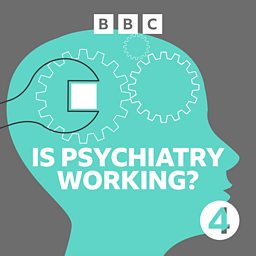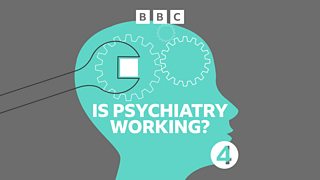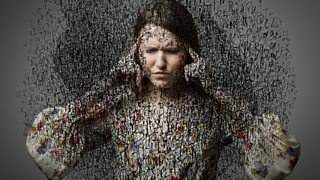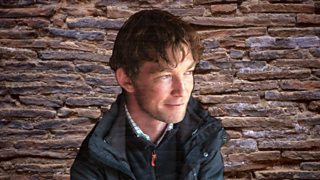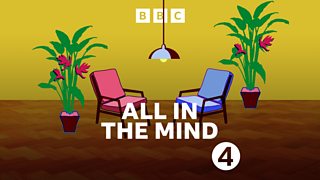What it's like to live with OCD
For Dom, a tragic accident contributed to a lifelong struggle with obsessive compulsive disorder.
It took him to rock bottom: estranged from family, out of work and sleeping rough.
But when he stumbled across a newspaper article about a new OCD treatment centre, hope sent him on a 200-mile journey on foot to seek help. It was a decision that would change his life forever.
In this episode of Radio 4's Is Psychiatry Working?, writer Horatio Clare and psychiatrist Professor Femi Oyebode investigate the first line treatments for OCD, as well as the specialist services and innovations in neurosurgery helping people like Dom.
“My youngest brother was killed in a car crash. It blew our family apart”
For Dom, the signs of OCD were there from a young age: “As a child I can remember a lot of things to do with symmetry: having to get dressed a certain way; if I looked over my left shoulder, I'd have to look over my right shoulder.”
OCD is a severe and disabling condition, which is little understood and often trivialised.Prof. Femi Oyebode
But when his youngest brother was tragically killed in a car accident, things got a whole lot worse. “I think that's when it really started biting,” he states. “Then it started to disable me.”
Dom struggled with simple tasks like getting dressed, making the bed, or posting a letter. “It could take me half an hour to check I'd locked my car,” he recounts.
“Untreated, it's pretty much constant and it just gets worse and worse.”
What is OCD?
“OCD is a severe and disabling condition, which is little understood and often trivialised,” explains Femi.
It has two component parts. There's the obsession, which is repetitive, intrusive and troubling thoughts, associated with anxiety. And there's also an action, a compulsion, which accompanies the thinking. The idea is that the action might reduce either the anxiety or the recurring thoughts.
“We don't exactly know what the causes are, but we know that this condition runs in families, so there must be a genetic component,” says Femi. In some people, like Dom, it can be provoked by an adverse traumatic life event.

“You're trying to do everything so perfectly that you can't actually achieve anything”
“You might check the light switch twice, then that doesn't work so you do it three times. Then that doesn't work so you do two lots of three times… It completely takes over your life,” Dom explains. “You're trying to do everything so perfectly that you can't actually achieve anything.”
“You also get thoughts that if I don’t do a certain thing, someone will die.”
Driving became a big problem. “Every time I hit a speed bump or a pothole in the road, I would be convinced that I just knocked someone down and killed them, and I would end up driving round and round the block a certain number of times, so it could take me half an hour to do a five-minute journey.”
“I gave up on life”
Dom grappled with OCD for many years before seeing a psychiatrist. He was given SSRI anti-depressants and cognitive behavioural therapy – two of the main treatments for OCD.
But then, Dom suffered a second traumatic event: his oldest school friend died. His symptoms became so extreme he had to leave his job and move back in with his family. His GP told him there was a three-year waiting list for therapy.
Then one day, everything came to a head.
“I always struggled to use cash points,” says Dom. “Have you put the right card in? Is the card going to come out again? Does the money come out? Have you dropped your card on the floor?... So, it used to take me quite a long time.”
A passer-by deemed his behaviour suspicious and reported him to the police. “I was basically stood up against the wall of Barclays Bank and had all my pockets turned out in a great crowd of people. And that was just the end for me, really. I had a massive, massive panic attack.”
He begged them to call his GP, who explained his condition. But the damage was done. “I caught a bus home. I grabbed my sleeping bag, and I just started walking, and I gave up on life.”
“I ended up living in the back streets of Doncaster”

Dom was sleeping rough with Mike, an ex-RAF tornado pilot who had severe PTSD from the Gulf War. Both men felt like they’d been “thrown on the scrapheap.”
Then a news article changed Dom’s life.
They were reading newspapers “filched out of the bin for something to do” when Mike handed him an article all about Professor Naomi Fineberg and her specialist OCD clinic at Welwyn Garden City. Mike insisted that Dom “hit the road” immediately, to go and seek treatment.
“He gave me his Tornado pilot's Kevlar jacket, which I still have to this day,” says Dom, choked up with emotion. “And I spent the next two weeks walking 200 miles from Yorkshire to Welwyn Garden City.”
“I went from the very, very worst of treatment – or no treatment – to the very, very best of treatment”
Dom managed to get treated by Professor Fineberg, but because his condition didn’t improve with medication and CBT, he was referred to a specialist NHS centre in London: Springfield Hospital. It was here that Dom received exposure and response prevention therapy.
It's a treatment which involves creating a list of items that bring on your obsessions, and then putting them in order, from the ones that cause the least anxiety to those that cause the most, explains psychiatrist Dr Lynne Drummond. With a fear of germs, a low trigger on the list might be touching a door handle; a top trigger might be touching a toilet flusher.) The patient faces up to the first fear, without doing their compulsions, and remains with the fear until their anxiety has gone. When that no longer causes anxiety, they can move on to the next item. “It's not a quick fix; it's not easy,” she states.
For Dom, it was a game changer. “That is what made the difference,” he believes.
His “simplest” task was being able to put a watch on without rituals. By the end, they had him walking down the street with odd socks on, his flies open, his shirt on back to front, throwing drawing pins on the pavement.
“I survived it and I'm still here to tell the tale,” says Dom. “By God, it is hard. But by God it works.”
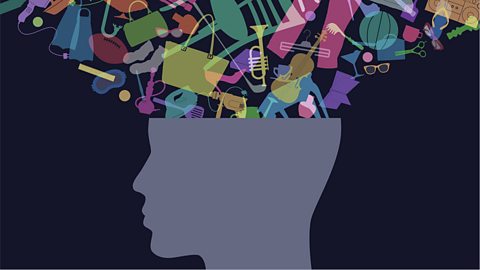
OCD treatments now, and looking to the future...
Dr Lynne Drummond and Prof. Ludvic Zrinzo explain the neuro-diversity of OCD sufferers.
New advances in treatment
Like Dom, two thirds of those admitted to Springfield make a good recovery. But for people who have difficulty responding to existing treatment, there's still light at the end of the tunnel. One possibility is neurosurgery.
For people that have difficulty responding to existing treatment, there's still light at the end of the tunnel.
“One type of surgery is to actually burn a little hole in the brain,” explains neurosurgeon Professor Ludvic Zrinzo. “What we see very often in the week following surgery is that the anxiety improves.” The patient’s behaviours may still be bad, but “it's a habit which can be broken, rather than an obsession and a compulsion, which is very difficult to break,” he explains.
Another option is deep brain stimulation, or DBS. “The neurosurgeon places an electrode very precisely within the brain, but instead of making a burn, that electrode is left there,” explains Ludvic. They send a tiny electrical current through that electrode making “a temporary stoppage” of the abnormal neural activity driving the symptoms. The benefit of DBS is if you don’t like the results, you can switch it off.
He believes these surgical options can “give hope to patients who have sometimes lost all other hope.”
“I'm just at peace”
Dom's extraordinary story shows how much better someone can get if they have access to the right treatments. It’s a story that’s taken him to Orkney, where he and his wife now live.
“I have good days, I have bad days – my wife will be the first to tell you that,” he says. “But even on a bad day, I have a framework. I’ve sort of been taught the tricks of the trade. I've sort of become my own therapist.”
For him, too, Orkney is therapy. “Living here with my own beach, watching my swans swimming up and down. The pace of life is lovely. The people are lovely. Therapeutically, absolutely brilliant. I'm just at peace.”

Mental health on 91�ȱ� Radio
-
![]()
Is Psychiatry Working?
As the numbers of people seeking treatment for mental health disorders rises globally, what do we know about the treatments on offer? Listen to all available episodes.
-
![]()
Living with OCD: 5 Key Questions Answered
Actor Tuppence Middleton has fascinating conversations with fellow-sufferers, and experts.
-
![]()
Free Thinking: Breakdown
In his memoir Heavy Light, Horatio Clare traces going from recording long walks for Radio 3 to being in a lockdown ward in a psychiatric hospital and coming out again.
-
![]()
All in the Mind
The show on how we think, feel and behave. Claudia Hammond delves into the evidence on mental health, psychology and neuroscience.
